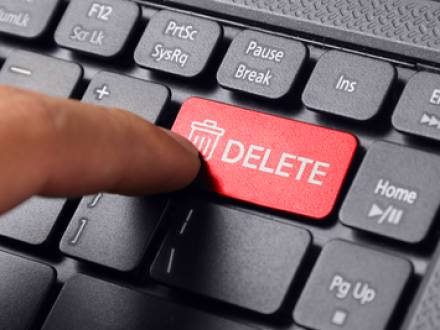
FREE CONSULTATIONS
8585-ADVICE
Can You Be Charged for Deleted Child Pornography Files?
 Possession of child pornography in the state of Maryland is a serious felony. But what if the files in question were deleted? Perhaps they were yours, or maybe someone else using your computer downloaded the files. In either case, you may believe that erasing the content from your computer also erases any future criminal liability, but this is not always true.
Possession of child pornography in the state of Maryland is a serious felony. But what if the files in question were deleted? Perhaps they were yours, or maybe someone else using your computer downloaded the files. In either case, you may believe that erasing the content from your computer also erases any future criminal liability, but this is not always true.
With today’s high-tech forensics, law enforcement can often recover deleted files or trace remnants of illegal content, even if you believed they were inaccessible. It is important that you consult with a knowledgeable Harford County, MD, criminal defense lawyer who can explain the charges and the defenses that may be available in your case. Sex crimes cases, especially those involving electronics, can be extremely complex, and the stakes could not be higher.
Maryland Law Regarding Possession of Child Pornography
Maryland Criminal Law Section 11-208.1 defines the crime of possession of child pornography, along with the potential penalties for a conviction. Child pornography may include photographs, videos, films, or other visual representations of children under the age of 16 engaging in sexual conduct. Knowingly possessing, retaining, accessing, or intentionally viewing materials classified as child pornography can lead to charges of possession of child pornography.
How Do Courts Define "Possession" in Digital Contexts?
In the context of digital files on a computer, possession is not limited to physically holding an item. It can include actual possession, which means that child pornography is on a device you own or control – a computer, phone, or external hard drive. Constructive possession means you have the power to control access to the material, i.e., the material is stored on a server you administer. Joint possession occurs when two or more people have control over the material.
The act of viewing child pornography presents a more complex question. Does viewing, without downloading or saving the material, equal possession? The concept of "ephemeral possession" refers to the temporary storage of data that occurs when streaming or viewing content online. For example, if you watch a movie from a streaming platform on your computer, data packets are temporarily stored in your device's temporary files or RAM. The question becomes whether this temporary storage constitutes "possession."
Simply viewing something online does not necessarily indicate intent to possess because it could be accidental. The temporary nature of data stored during streaming presents an argument that temporary storage cannot be viewed in the same way as intentional downloading and saving files for later access.
Are Deleted Files Still Considered "Possession?"
Law enforcement often uses forensic tools to retrieve deleted files from hard drives, phones, and cloud storage, offering metadata and file "remnants" as evidence of wrongdoing. There is a necessity for valid search warrants and a proper chain of custody in digital investigations, but can law enforcement prove you were in "possession" of something that is not still on your digital device? Prosecutors must prove the following for deleted files that are partially recovered:
- You were aware that the files existed.
- You had control over the device or storage system.
- The material was once viewable or intentionally downloaded.
Your attorney can argue lack of knowledge or intent, accidental download, shared devices, insufficient proof of access or control, improper search and seizure, or may dispute forensic evidence or witness conclusions.
Penalties for Child Pornography Crimes
Although a first offense of possession of child pornography is a misdemeanor, a conviction can nonetheless result in up to five years in prison. A second offense is a felony, with a potential sentence of up to 10 years in prison. Producing or distributing child pornography is a much more serious offense that is always charged as a felony, with prison sentences up to 10 years for a first offense, and up to 20 years for a second offense.
Contact a Northern Baltimore County, MD Child Pornography Lawyer
Child pornography charges can be terrifying, overwhelming, and life-altering. A Harford County, MD child pornography attorney from Baltimore Legal Services can review your case and explain your options. We are available 24/7 and have helped over 10,000 clients. To schedule your free consultation, call 858-523-8423.




 CALL US
CALL US TEXT US
TEXT US EMAIL US
EMAIL US
